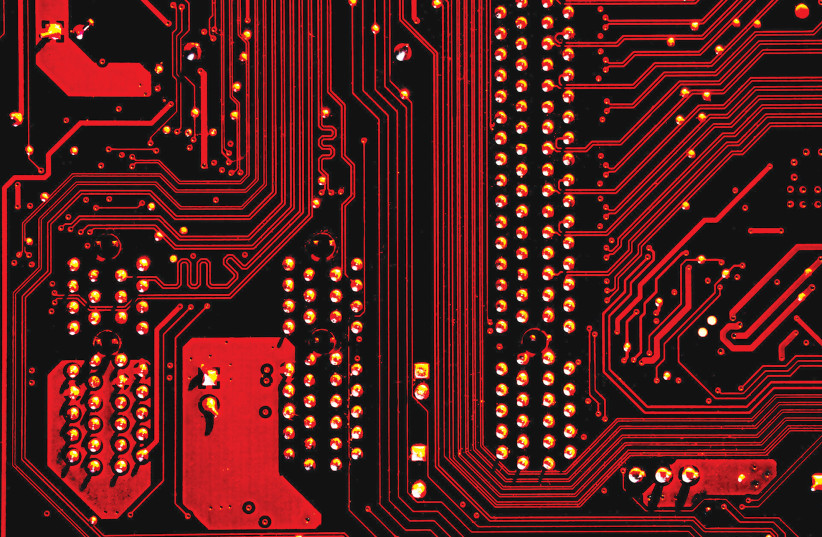The rising wave of layoffs that has hit Israeli hi-tech in recent months officially ends the 2021 period of cheap money and high valuations. While the current crisis poses many challenges, the layoffs also hold opportunities for Israel’s hi-tech sector to improve its competitiveness and value propositions.
Against the backdrop of decreasing numbers of new start-ups established in Israel in recent years (an annual decrease of 11%, according to SNPI data), the current wave of layoffs can actually rekindle Israel’s entrepreneurial drive. Every crisis contains seeds of growth, especially in the fields of technology and entrepreneurship, and the current crisis is fertile ground for restarting Israeli entrepreneurship. This is for several reasons:
First, and unlike in the previous wave of layoffs, senior employees are currently among those being laid off. This means that quite a few potential entrepreneurs with significant experience in hi-tech, who spent a long time working with and learning from professional entrepreneurs about “how to be an entrepreneur,” are now entering the free market. They’ll be able to either become entrepreneurs themselves or be a part of management teams of new start-ups.
In general, among hi-tech employees, there’s been a dilemma; whether to stay in the comfortable bubble and work for an existing technology company, or to leave it, meaning, to give up the salary, the options package, and the favorable conditions, and establish a new start-up. Although this dilemma has diminished in recent years, during which excellent conditions in development centers and hi-tech companies convinced many to remain working as employees, now the reality is forcing those who were fired to make decisions. As a result, the current situation will send at least some of these employees on a new entrepreneurial journey.
A CRITICAL POINT for the success of young start-ups is funding, and here, too, we can see a positive point in favor of new start-ups. Funds that invest in early rounds (Seed), continue to invest. This can even be seen in the report published by IVC, which states that in the third quarter of this year, the volume of investment in Israeli tech increased compared to the previous quarter and the corresponding quarter last year. So, funding for young start-ups is still available.

What’s more, new start-ups will emerge from the current crisis. In my humble opinion, we can also see a significant improvement in the older companies as a result of this winter of layoffs that’s passing through the global and Israeli hi-tech sectors: Since the beginning of the year, a welcome change of mind has begun in many Israeli hi-tech companies: Most of them have prioritized making the companies profitable in the near future.
Doing so, unfortunately, means often painful streamlining and layoffs. This also makes it possible to slow down the rate of burning through cash in the short-term. There’s no doubt that every wave of layoffs is painful and difficult, but in the end, I’m convinced that the result will be a far healthier and stronger Israeli hi-tech industry.
The main and relevant business model now hearkens back to that of the “old economy,” with many hi-tech companies prioritizing profitability over future growth. Companies whose road map to profitability is spread over many years will have difficulty raising capital, and those who succeed will do so at valuations much less generous than last year. Companies that previously planned to develop new products will have to pause development and refocus on their core business.
Growing up in a new economic reality
In today’s economic reality, it’s time to grow up, and indeed, we’re witnessing more and more entrepreneurs from large companies making the appropriate updates and cuts. During this period, entrepreneurs need to stay calm, acknowledge the crisis, recalculate their course, adjust their company’s strategy for the longer term (i.e., identify additional sources of income, how to become profitable, cut back on manpower and operations) and, thus, strengthen the intrinsic value of the company within the broader industry. Many managers fear the moment when they’ll have to change direction, cut expenses and decide on layoffs. But in this reality, there’s an expectation that good managers will manage the crisis in the best way, even if it entails making difficult decisions.
WE’RE IN A CRISIS , and crises are a part of the business cycle. However, this moment is also an important landmark in that the current crisis is taking Israeli hi-tech to the next level. The impact of the crisis on Israeli industry allows Israeli companies to better compete in the global market, normalizes the value of hiring and the high wages of employees, generally returns the market to a healthy balance, and puts the fundamental motive of enterprise, i.e., the aspiration for profitability, at the core of the strategy of every healthy company.
Additionally, regarding the issue of layoffs, proportions are important. Although the facts show that many hundreds of workers have already been fired from hi-tech companies in recent months, there’s no vacuum in the hi-tech industry, and the demand for good workers, and especially for talent, hasn’t vanished, and, apparently, isn’t expected to end. Most of the fired employees will start a new job in one company or another. They’ll end up in healthy companies, with a clear path to profitability and growth for years to come.

We’re going through a difficult period, but from a long-term view, infrastructure is being built here that will turn Israel into a hi-tech powerhouse that will be at the forefront of the global hi-tech industry for many years to come. New companies with more experienced entrepreneurs will be established, good companies will become better, fewer good companies will evaporate from the market, and the invested capital will be dispersed among strong companies that will then grow the market exponentially.
If Israeli entrepreneurs can leverage this wave in the hi-tech “life cycle,” then the current crisis will still be remembered as the one that catapulted Israeli hi-tech to the next level.
The writer is a managing partner in the secondary fund Amplefields Investments
